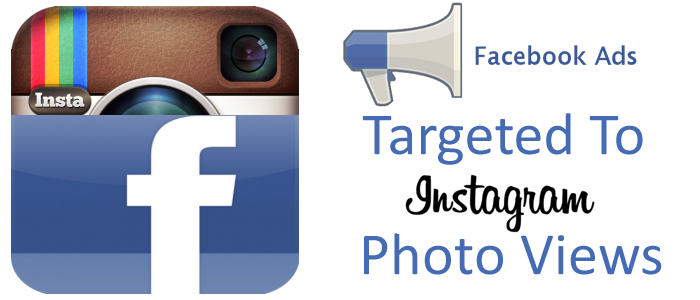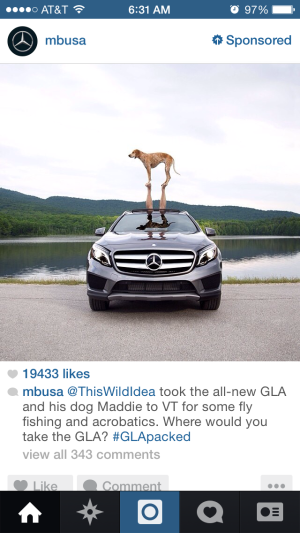Marketers have been wondering how Instagram and Facebook would begin to merge on the advertising side of things, particularly when it comes to relationships between the two from an ad tracking perspective. And it looks like we have hit the point where ads can be targeted to users on Facebook because of an image they saw on Instagram.
Instagram is conducting a test with Mercedes-Benz that allows the luxury car brand to effectively target Facebook users who previously saw one of its Instagram ads, according to executives familiar with the campaign. Several other advertising agency execs who also recently met with Instagram said Instagram has discussed the test with them and intends to make the capability more widely available in the future.
It also opens the door to the possibility that Facebook advertisers could target images outside their control for advertising. For example, if a celebrity like Kim Kardashian uploads a photo to Instagram wearing a pair of Gucci sunglasses, could Gucci then target people on Facebook who viewed that Kim Kardashian Instagram photo? Or what if any Facebook advertiser could target those who view Kim Kardashian’s photos in Instagram? It is definitely a slippery slope, because now we know Facebook and Instagram have this technology to do it.
The reverse could also be true, where a person who likes a brand on Facebook could end up seeing ads for that brand when they view random photos on Instagram.
Instagram’s Q&A page states the possibility of advertising between itself and Facebook based on content viewed on either.
We want to show ads from businesses that are interesting to you, and to do that we will use information about what you do on Instagram and Facebook (our parent company). For instance, this might include the people you follow and the photos and videos you like on Instagram, and your interests and other basic info on Facebook.
What does this mean for marketers? It means more market areas for your Facebook ad spend. But the question remains if an ad on Instagram would be worth as much as an ad or a sponsored post would be on Facebook. But hopefully we don’t come to a point where Facebook attempts to force advertisers to advertise on both social media platforms, which wouldn’t be such a big stretch with how much Facebook is trying to force brands to advertise by reducing their organic footprint.
Jennifer Slegg
Latest posts by Jennifer Slegg (see all)
- 2022 Update for Google Quality Rater Guidelines – Big YMYL Updates - August 1, 2022
- Google Quality Rater Guidelines: The Low Quality 2021 Update - October 19, 2021
- Rethinking Affiliate Sites With Google’s Product Review Update - April 23, 2021
- New Google Quality Rater Guidelines, Update Adds Emphasis on Needs Met - October 16, 2020
- Google Updates Experiment Statistics for Quality Raters - October 6, 2020


